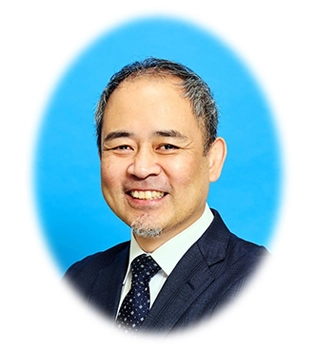Greeting
Greeting from
SPE Japan section president
Truly Interdisciplinary Polymer Processing

In August 2024, I, Takashi Saito, assumed the position of Chairperson of the Japan Section of the Society of Plastics Engineers (SPE), succeeding Professor Hiroshi Ito of Yamagata University. Upon taking this position, I would like to share some thoughts on a subject I often ponder: plastic molding processing as a quintessential interdisciplinary research topic.
It is well known that the academic fields related to polymer processing are extremely diverse. Therefore, to advance research and technology in polymer processing, I believe it is necessary to adopt an interdisciplinary approach that integrates multiple distinct fields rather than remaining confined to a single area of expertise. For example, synthesizing polymer materials efficiently and providing them in a form suitable for processing requires knowledge of chemical engineering. Additionally, understanding the properties and physical and chemical behaviors of polymer materials necessitates insights from materials science. By incorporating computational simulation technology, it becomes possible to predict the behavior of materials during processing, leading to the establishment of optimal processing conditions. Furthermore, knowledge of mechanical engineering is indispensable for actually performing polymer processing. Mechanical engineering plays a significant role in the design and operation of molding machines, mold design, and process control. With this comprehensive technical framework, precise and efficient polymer processing becomes possible, enabling the stable production of high-quality products.
In recent years, with the growing awareness of environmental issues, environmental science has also gained importance. It is essential to promote the recycling and reuse of plastics and contribute to the realization of a sustainable circular society. This requires leveraging knowledge from environmental science to minimize environmental impact throughout the entire lifecycle of plastics. Additionally, considering the manufacturing costs of plastic products and market trends, insights from economics should also be incorporated to utilize plastics effectively in an economically viable manner.
Amid the global trend toward realizing a sustainable society, the use of biodegradable and bio-based plastics as alternatives to petroleum-derived plastics is expected to expand further. These plastics are seen as promising materials in the long term, as they not only reduce environmental impact but are also manufactured from renewable resources. However, given the current challenges related to cost, advancements in cost-reduction technologies are highly anticipated.
In addition to the materials themselves, technological innovations in the polymer processing process are also crucial. Particularly, the analysis of big data obtained through the Internet of Things (IoT) and the introduction of artificial intelligence (AI) are expected to advance the optimization of molding conditions efficiently. Needless to say, process efficiency improvements not only enhance product value but also contribute to reducing environmental impact, making this an area that should be emphasized more than ever.
In such a broad and information-rich field as polymer processing, it is understood that staying updated with the latest information is crucial. This requires not only individual efforts but also building networks with experts within and outside the industry and sharing information through organizations such as academic societies. The Japan Section of SPE, which regularly holds lectures, is well-suited for fostering connections and sharing knowledge among experts, aiming to become a valuable platform for solving technical challenges and generating new ideas. As the new Chairperson, I am committed to providing a venue that many people will want to participate in.
Dr. Takashi Saito
(Institute of Science Tokyo)

